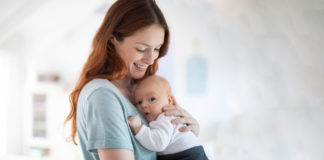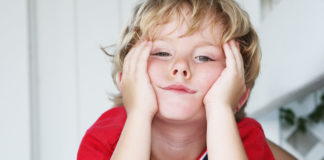1…2…3…run to the wall! Freeze! Playful parenting
There was a time when the word parenting would cause me to either roll my eyes or shrug. It was a time when seven hours of sleep a night, instead of at least eight, had the destabilizing potential of a hurricane, a time when the clear voices of children in the park would compel me to grab a book and read under my...
More than love: an x-ray of a happy marriage
There is a saying that describes one’s life partner as being most appreciated during two life stages: before marriage and after the funeral. Unfortunately, proverbs and sayings hint at a reality which is also faithfully rendered by statistics showing that love wears off pretty soon in many marriages. But maybe this is part of the problem—the fact that we overburden love, treating it...
Lessons from a mum’s group
FTM here. My LO has been EBF since birth. Now she’s eight months. My MIL thinks she should be on purees, but I want to try BLW.”
COVID-19: Forgiveness in isolation
When we are isolated with our family, problems that are sometimes easy to ignore become more acute, and the need to receive and offer forgiveness to those around us becomes increasingly evident.
What we can learn from our children
The relationship between a parent and their child is one of the most significant in their lives, with its primary role being education.
Parenting school: the counsellor and consultant phases
This article is the third and last in the "Parenting School" series. The first two parts were published in the May and June 2020 issues of Semnele Timpului, the Romanian version of the ST Network.
Build boundaries, protect your marriage
The most important human relationship you'll ever have is with your spouse. Protect it at all costs.
COVID-19: Inequality and the pandemic
When confronted with the pandemic, we are anything but equals.
When love errs…
Henry Ford is believed to have said: “Sometimes a mistake can be all it takes to make a valuable achievement.” Apparently paradoxical, the statement says a lot about us and what we consider at any given moment to be “a mistake.”
Why it’s okay to let your children get bored from time to time
The refrain: “I’m booored…” is “the worst song on the parenting soundtrack,” says journalist Kat Patrick humorously. Chanted in the most inconvenient moments, this complaint often triggers the parent’s guilt or concern. But there’s nothing wrong with letting your child get bored sometimes.
The letter that did not get lost
Denisa Selagea has lost many things so far, from keys and phones to patience and opportunities. She has also lost sight of many words that needed to be said. So, this time, she thought she would stitch them onto paper before they got lost, to be read before it’s too late.
To those who loved us first | The ageing of our parents
If the death of our parents is a blow which makes “the very fabric of life…buckle and cave in,” the ageing of our parents resembles a classroom where we learn to give more than we are used to receiving.
Mother by profession
Raising a child is not easy at all. Raising someone else’s child is even harder. But raising six children who are not your own, giving up your life, sounds crazy to most of us.
We are not creators, but inspirers and witnesses
It is not we who educate our children, they educate themselves. Unique, complete, amazing. Every child and every childhood is a challenge to discover and respect their individuality. Let's enjoy the revelations they give us and grow ourselves by observing and facilitating their growth.
Family crisis does not wear a mask during a pandemic
Many families who feared that the new coronavirus would affect their health ended up dreading its effect on something seemingly even more difficult to protect: the well-being of their relationship.


























